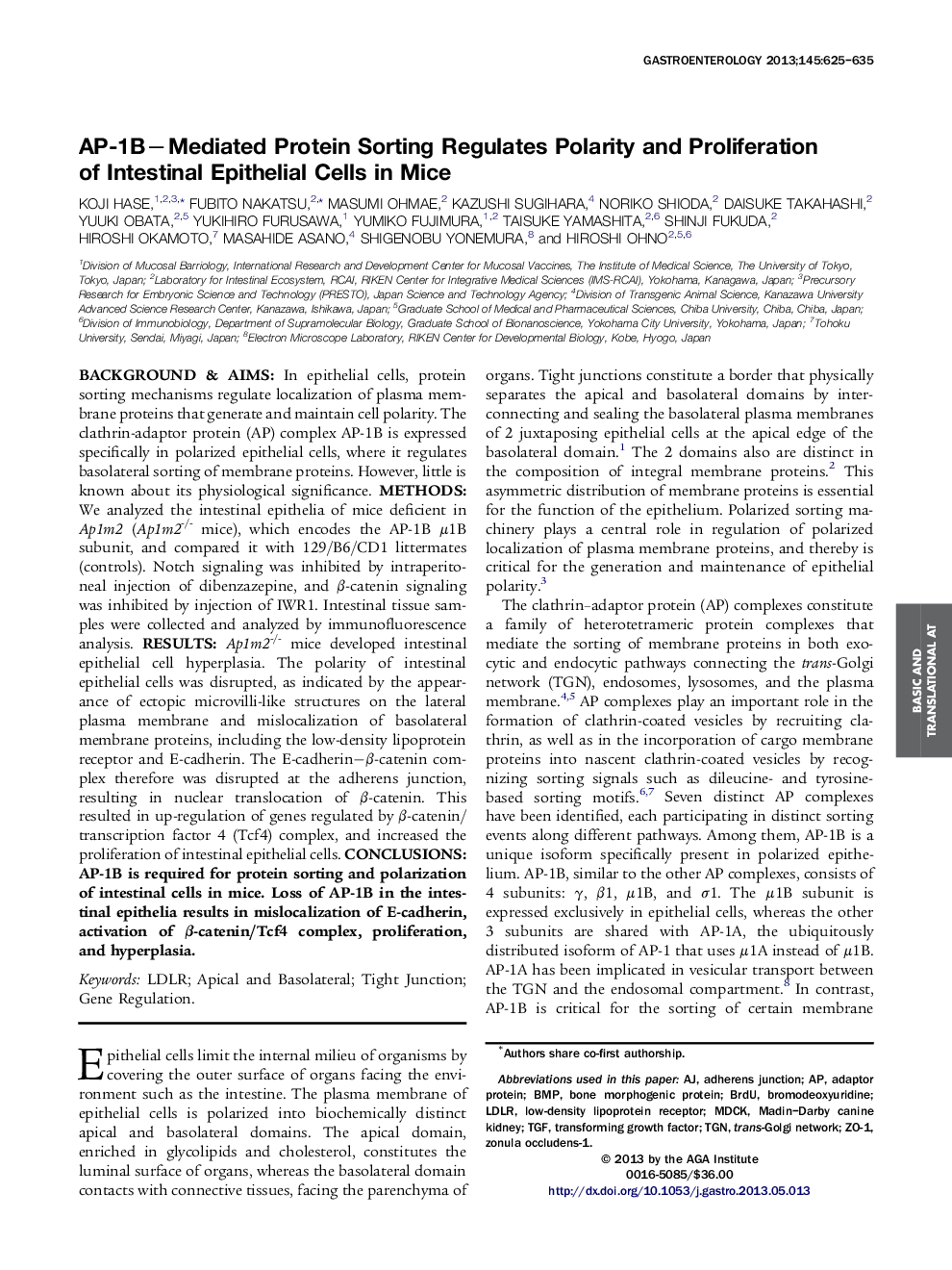| Article ID | Journal | Published Year | Pages | File Type |
|---|---|---|---|---|
| 3292442 | Gastroenterology | 2013 | 11 Pages |
Background & AimsIn epithelial cells, protein sorting mechanisms regulate localization of plasma membrane proteins that generate and maintain cell polarity. The clathrin-adaptor protein (AP) complex AP-1B is expressed specifically in polarized epithelial cells, where it regulates basolateral sorting of membrane proteins. However, little is known about its physiological significance.MethodsWe analyzed the intestinal epithelia of mice deficient in Ap1m2 (Ap1m2-/- mice), which encodes the AP-1B μ1B subunit, and compared it with 129/B6/CD1 littermates (controls). Notch signaling was inhibited by intraperitoneal injection of dibenzazepine, and β-catenin signaling was inhibited by injection of IWR1. Intestinal tissue samples were collected and analyzed by immunofluorescence analysis.ResultsAp1m2-/- mice developed intestinal epithelial cell hyperplasia. The polarity of intestinal epithelial cells was disrupted, as indicated by the appearance of ectopic microvilli-like structures on the lateral plasma membrane and mislocalization of basolateral membrane proteins, including the low-density lipoprotein receptor and E-cadherin. The E-cadherin−β-catenin complex therefore was disrupted at the adherens junction, resulting in nuclear translocation of β-catenin. This resulted in up-regulation of genes regulated by β-catenin/transcription factor 4 (Tcf4) complex, and increased the proliferation of intestinal epithelial cells.ConclusionsAP-1B is required for protein sorting and polarization of intestinal cells in mice. Loss of AP-1B in the intestinal epithelia results in mislocalization of E-cadherin, activation of β-catenin/Tcf4 complex, proliferation, and hyperplasia.
